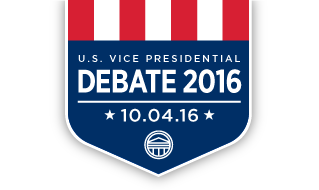Debate Related Courses - Fall 2016
Related: More than 30 debate-related courses take shape for fall semester Longwood.edu
Longwood.edu
General Education Courses
English 150—Writing and Research
Dr. Steve Florczyck
Students will develop academic skills in written and oral communication in order more effectively to communicate their own ideas about politics, the debate, and the role of informed citizens in our democracy. Course will focus on understanding and analyzing the rhetorical strategies employed in American political discourse, with the debate serving as a uniquely local (and exciting) example.
English 203—American Literature
Dr. Steve Florczyck
Focusing on historical and contemporary American literature, this course will provide students the opportunity to synthesize themes from these works with ideas brought forward during the debate. Students will develop their political awareness by better understanding the role of literature in reflecting and shaping American culture, past and present.
English 203—American Literature
Dr. David Magill
By reading and analyzing works ranging from the founding of the United States to today, students will think critically about uniquely American themes that emerge in the vice-presidential debate. As a result, they will be prepared to consider the possibilities of and barriers to our shared democracy as expressed in literature and as experienced by themselves and by those around them each day.
English 400—Active Citizenship
Dr. Shawn Smith
Texts written in the late eighteenth century continue to matter today, not only in the debates we engage in informally, but in such formal arenas as the vice-presidential debate at Longwood. A particular point of emphasis in this course will be the Constitution itself. In a speech at the Constitutional Convention in 1787, Benjamin Franklin declared: “I confess that I do not entirely approve of this Constitution at present, but … I am not sure I shall never approve it.” This statement will serve as a point-of-departure for a larger thought experiment: Do we need another Constitutional Convention?
French 201—Intermediate French I
Prof. Heather Edwards
Students will be able to develop their skills in French and, at the same time, to participate as engaged citizens in this year’s election. Alongside a number of exercises and discussions linked to political issues raised during the 2016 election cycle, students will interact directly with the debate by live-tweeting in French their reactions and opinions.
Honors 495—American Politics / American Cinema
Dr. David Magill
Students will examine a broad range of American films as a means of developing political and media literacies. At the same time, they will enhance their understanding of cultural and social issues as reflected in American cinema and consider the relationship between these issues and the 2016 election.
Music 224—Music Appreciation (Honors)
Dr. Chris Swanson
Students will be introduced to a wide variety of compositions from the classical music canon, with particular emphasis on music as political propaganda. Students will listen to and discuss music that was composed for specific political purposes—perhaps to glorify a ruler, or to create rebellion, etc.—and then analyze the role of music in contemporary political advertisements.
Physics 103—Conceptual Physics
Dr. Charles Ross
One of the primary goals of an introductory science course is to teach students to recognize the differences between science as a practice and science as a political football. As part of this course, students will study both what scientists know about climate change and what politicians say about it—in particular what they say at the vice-presidential debate.
Sociology 102—Contemporary Social Problems
Dr. Lee Bidwell
Students will be asked to consider the ethical, personal, and social implications of policies advocated by candidates as well as their own positions on these issues. The assignments and course activities will be directly linked with the political conversations surrounding the 2016 election in general and the vice-presidential debate in particular.
Women and Gender Studies 106—Introduction to Women and Gender Studies
Dr. Larissa “Kat” Tracy
Students will study early debates regarding women’s rights in the West—how these discussions have evolved, the proponents and opponents, and the obstacles and the achievements—thereby gaining a
sense of the shaping force of feminism on the American political process. Students will then analyze sociological factors that affect the perception of gender in our culture and apply them to an analysis of the two campaigns and the surrounding media environment.
Non-general Education Courses
Art 252—Printmaking
Prof. Kelly Nelson
Students will study the printmaking revolution as it has unfolded across the globe. They will then use their developing skills to plan and create their own letterpress political posters for one of the vice-presidential candidates.
Art 350—Bookbinding
Prof. Kerri Cushman
The variety of book forms studied in this course will span centuries, providing a broad historical view of what constitutes a book. Students will also consider other printed material such as zines, political posters, and campaign buttons, with special attention to historical slogans, broadsides, and ephemera. Instead of producing blank books (as in past iterations of this course), students will create books with political content reflecting the 2016 debates.
Art 441—Art Education in the Secondary School
Prof. Kelly Nelson
Pre-service teachers will develop and then implement lesson plans that align with issues raised during the debate and that satisfy appropriate standards of learning. They will also create and conduct an on-campus interdisciplinary workshop tied to the 2016 election and invite local middle and high school students to participate.
Art 495—On the Campaign Trail
Prof. Michael Mergen
In this six-credit course, students will photograph the 2016 presidential campaign the vice-presidential debate at Longwood University and the presidential debate at Hofstra University. By making local and regional daytrips, students will document political rallies, get out the vote efforts, and speeches, while considering the physical, political landscape of signage, bumper stickers, and other ephemera. View their blog >>
Related: Life on the Trail [Debate Countdown]
Communication 101—Public Speaking
Dr. Laura Farrell
In this course, students will study the importance public speaking planning and execution surrounding the 2016 Presidential election. Students will explore the role of public speaking in creating understanding of key political topics that are part of the current national conversation around this historic election.
Communication 210—Media and Society
Dr. Kris Paal
Students will conduct oral history interviews in order to gauge the role of political media messages in shaping cultural identity. Reactions to media surrounding the vice-presidential debate will be a point of emphasis.
Communication 280—Introduction to Public Relations (separate sections)
Dr. Naomi Johnson, Dr. Kris Paal
Students will study public relations tactics in the weeks leading up to the vice-presidential debate. Dr. Johnson’s class will focus primarily on issues of diversity, and Dr. Paal’s students will focus on issues related to religion. The culminating project in each class will be a debate between student campaign teams, which will be open to the public.
Communication 341—Advanced Media Writing
Prof. Jeff Halliday
Students in this advanced media writing will collaborate with students from Art 495: On the Campaign Trail. Learning together, they will visit campaign related events and produce multimedia online news articles combining photography and news writing.
Communication 354—Public Relations Writing
Dr. Alec Hosterman
By focusing on the two campaigns before, during, and after the debate, students will learn how traditional writing tools in public relations can be adapted to political communication. Along with writing a “white paper” arguing for a course of action with respect to a specific topic or event resonant during the 2016 election, students will be asked to create a carefully sourced blog site that deliberately takes a particular political viewpoint.
Communication 360—Contemporary Practices in Communication (Political Communication)
Dr. Ryan Stouffer
Students will study fundamental facets of political communication from both an historical and a contemporary perspective. Students will pay close attention to advertisements, political speeches, news coverage—and (of course) to debates in general and to the 2016 vice-presidential debate in particular.
Communication 361—Contemporary Practices in Communication (Deception and Lying)
Dr. Alec Hosterman
Stereotypes notwithstanding, political discourse (broadly defined) surrounding the debate should provide plenty of examples for students to analyze throughout the semester. Everything related to the 2016 election will be fair game: from advertisements, to press conferences, to choosing a running mate, to—most especially—the vice-presidential debate.
Communication 375—Public Relations Research
Dr. Alec Hosterman
Students will develop research strategies by focusing on the emerging field of data journalism as it relates to the vice-presidential debate. A concluding survey research assignment will allow students to gauge the impact of the debate specifically on the Longwood community.
Communication 410—Digital and Social Media
Dr. Ryan Stouffer
Students will learn about contemporary theories of political communication and then use this information to analyze the candidates’ social media platforms. They will also marry theory to practice by producing their own active marketing campaigns using digital tools and social media outlets.
Counseling 503—Introduction to the Profession of Counseling (Graduate Course)
Dr. Kevin Doyle and Dr. Lauren Wynne
The counseling profession has begun in recent years to take political advocacy much more seriously as state and federal policies continue to impact important issues such as access to mental health services. In this course, these issues will “come alive” by using the 2016 campaign as a sounding board for discussion of key issues facing counselors, the counseling profession, and, most importantly, citizens in need of counseling/mental health services in this country.
Economics 416—Applied Game Theory
Dr. David Lehr
This course aims to deepen students’ understanding of the fundamental concepts of game theory (Nash equilibrium, signaling, credibility, etc.) by using the 2016 election as a touchstone. Students will come away from the course not only with a solid understanding of the basics of game theory, but with a sense of what it means to be an active and informed participant in our democratic society.
History 375—Modern Germany
Dr. Melissa Kravetz
Much of the rhetoric surrounding the presidential race has been driven by a question of immigration. Americans have been grappling with fundamental questions regarding what citizenship means, who should be/should not be allowed into this country, and the role of immigration in our national polity. The European Union has been confronted with the same questions in the face of the ongoing refugee crisis, with Germany at the forefront of this debate. In this course, students will compare the American and German situations—and discourses—with respect to immigration.
Sociology 220—Self and Society
Dr. Jake Miln
The vice-presidential debate provides a unique opportunity for students to consider how politicians construct and negotiate their respective selves and identities in relationship to others; students will be able to study the candidates in informal (as viewed through various media) and formal (presented through the debate) settings. Ultimately, students will examine how the debate setting allows us as a country to present, negotiate, and manage a national identity.
Spanish 202—Intermediate Spanish II (separate sections)
Dr. Lily Goetz, Dr. Javier Urenda
Connections will be made between the issues being debated in our nation with hot-button issues in several Spanish-speaking countries. With the twin goals of improving language skills and promoting civic engagement, students will use internet resources such as online newspapers and websites dealing with the politics in other countries and work to relate that information to US election and the Vice Presidential debate.
Spanish 325—Hispanic Culture and Written Expression
Dr. Lily Goetz
Students in this class will improve their language skills and learn about Spanish-speaking cultures. An expert from the University of Valencia, Spain, will be coming to Longwood to speak specifically about about the Spanish politics, thereby offering students the chance to learn about our own political processes by way of contrast.


